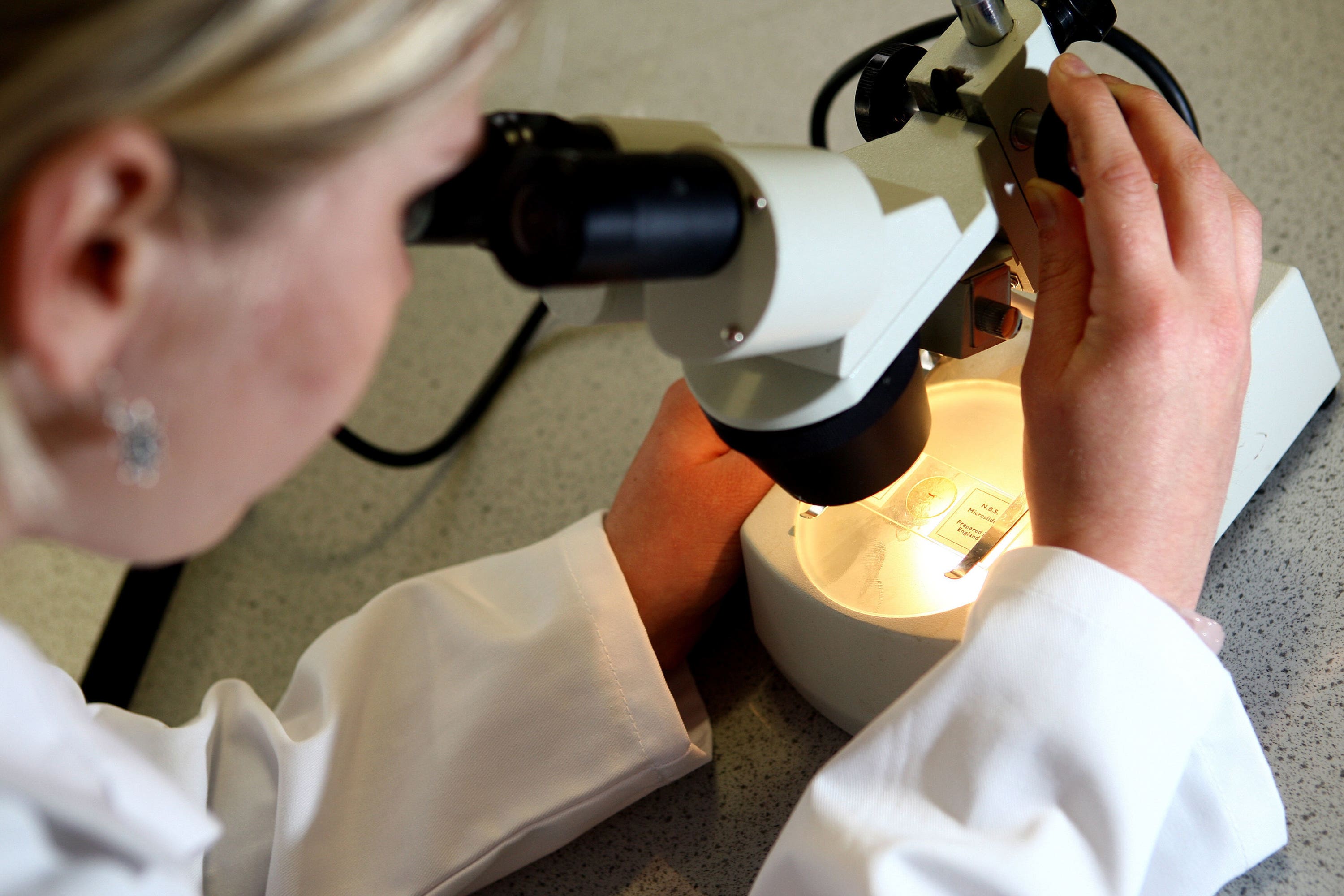At-home poo tests ‘could cut wait times for suspected cancer cases’
The test costs the NHS between £4 and £5 per sample.

Your support helps us to tell the story
From reproductive rights to climate change to Big Tech, The Independent is on the ground when the story is developing. Whether it's investigating the financials of Elon Musk's pro-Trump PAC or producing our latest documentary, 'The A Word', which shines a light on the American women fighting for reproductive rights, we know how important it is to parse out the facts from the messaging.
At such a critical moment in US history, we need reporters on the ground. Your donation allows us to keep sending journalists to speak to both sides of the story.
The Independent is trusted by Americans across the entire political spectrum. And unlike many other quality news outlets, we choose not to lock Americans out of our reporting and analysis with paywalls. We believe quality journalism should be available to everyone, paid for by those who can afford it.
Your support makes all the difference.At-home poo tests could spare tens of thousands of people from having to undergo invasive procedures to rule out cancer in the bowel, colon or rectum.
It is hoped the move could help diagnose colorectal cancer faster and cut NHS waiting times by reducing the need to refer people for a colonoscopy.
New draft guidance from the National Institute for Health and Care Excellence (Nice) said faecal immunochemical tests (FIT) should be offered to patients with signs or symptoms of the disease, such as blood in the poo.
The test requires a small sample, which is then posted to a laboratory where the amount of blood in the poo is measured. Results are usually available within a week.
According to Cancer Research UK, there are about 42,000 new cases of colorectal cancer each year.
FIT tests cost the NHS between £4 and £5 each and can correctly identify about nine in 10 people with colorectal cancer.
Mark Chapman, interim director of medical technology and digital evaluation at Nice, said: “Colorectal cancer is the fourth most common cancer in the UK.
“These recommendations ensure we are balancing the best care with value for money, while at the same time delivering both for individuals and society as a whole.”
Analysis by Nice found that 94,291 fewer colonoscopies would take place if the number of people referred fell by 25%.
Those with low-risk symptoms, especially younger people, often face a delayed diagnosis or have to see their GP a number of times before being referred for further tests
According to the organisation, NHS capacity for colonoscopies is “limited”, with patients facing long wait times.
Using at-home tests “could reduce the number of people referred for urgent colonoscopy, and so reduce the waiting times to allow people on non-urgent referral pathways to be seen more quickly”.
However, Nice warned GPs should still refer patients with a negative FIT for a colonoscopy if symptoms persist.
Genevieve Edwards, chief executive at Bowel Cancer UK, added: “Those with low-risk symptoms, especially younger people, often face a delayed diagnosis or have to see their GP a number of times before being referred for further tests.
“This guidance will help GPs to better identify and refer the right patients for further testing quickly and could help detect bowel cancer at an earlier stage when it is more treatable and curable.”
Professor Peter Johnson, NHS national clinical director for cancer, said: “GPs and hospital teams are already using FIT kits when patients come forward with possible symptoms of bowel cancer – and the use of these tests has tripled in the last year.
“We welcome this guidance from Nice which will help us to make the most effective use of NHS services and ensure people are diagnosed and treated as quickly as possible for bowel cancer.”